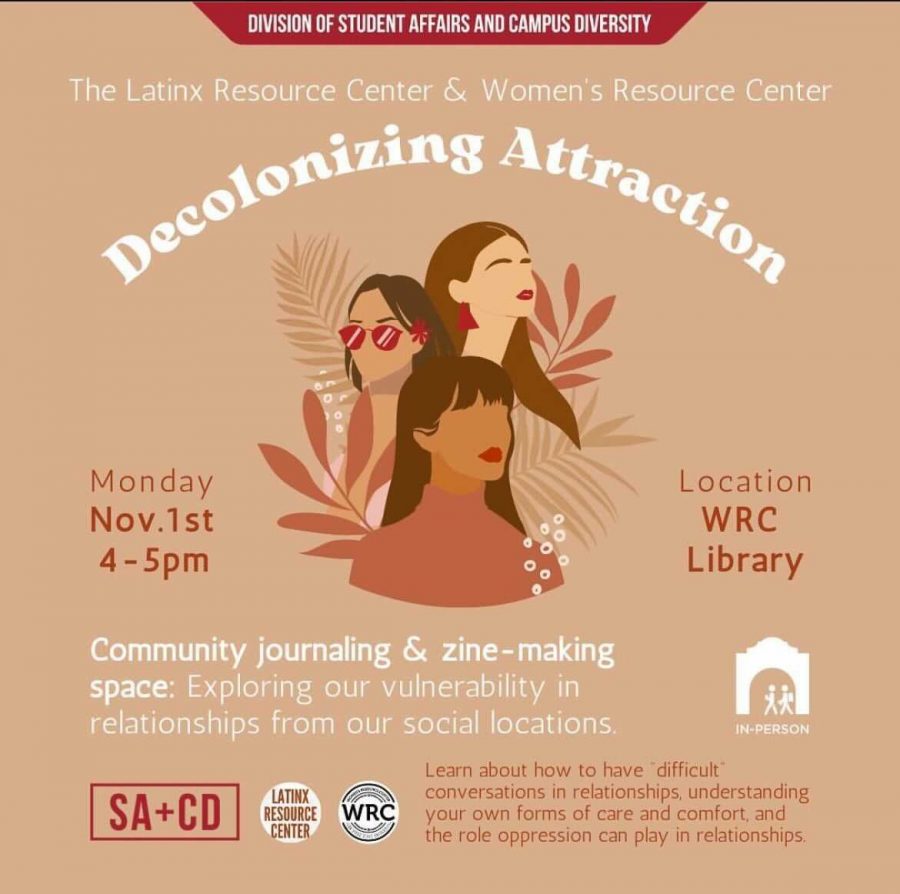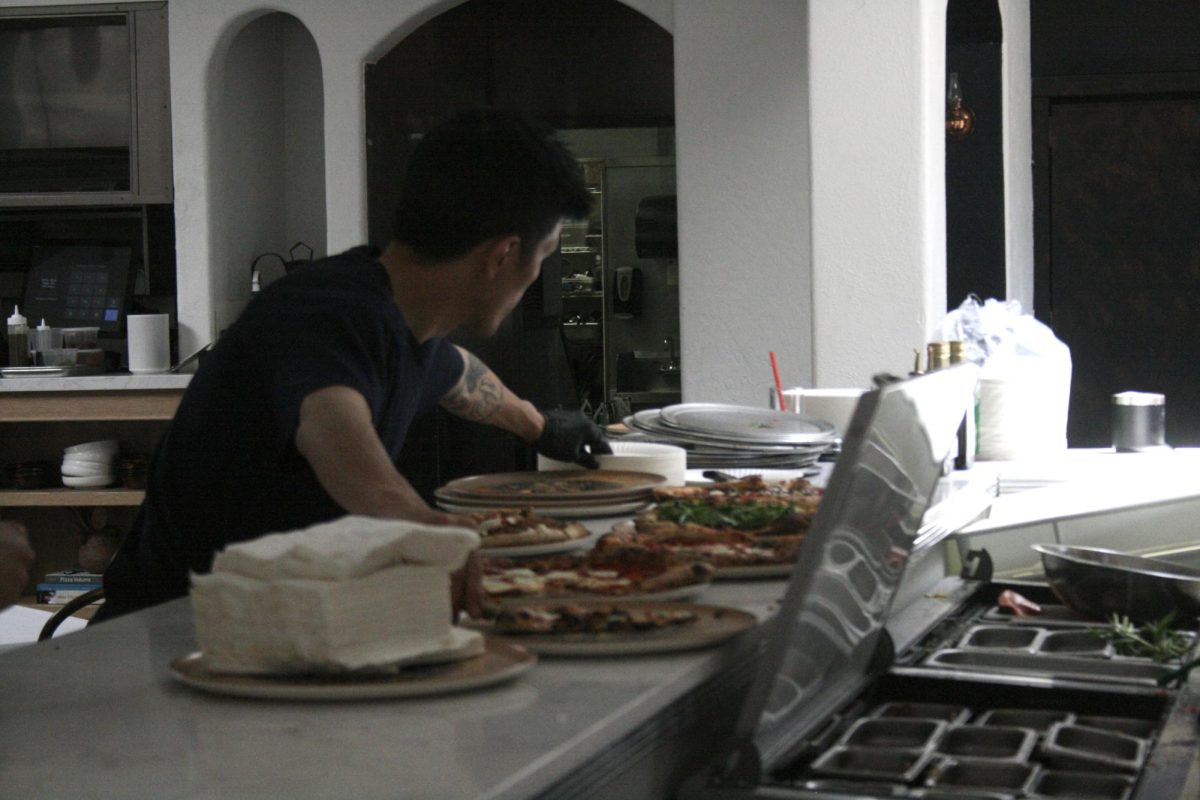On Nov. 1, SDSU’s Women’s Resource Center and Latinx Resource Center hosted an event centered around “decolonizing attraction.”
Decolonizing attraction is learning how to unpack identities, experiences and broader cultural systems impacting the ways we experience attraction whether it’d be platonic, romantic, and sexual in forming relationships.
Participants were welcomed in this educational safe space with essential oil fumes and yoga mats to sit on. A five-minute meditation was led by staff to help ground oneself – given the context of the material that was going to be discussed.
A “zine” (a miniature activity book related to the discussion) and colorful markers were given to participants to fill out while a PowerPoint presentation was conducted. Topics of conversation included vulnerability, intimacy, biases, and barriers, and a series of questions were asked in relation to these topics.
Participants then shared personal experiences and examples, which allowed for everyone to engage through their similar feelings and understanding.
The event aimed to ensure participants knew how to better interact with themselves and others. They also explained how to have complex talks with their partners in regard to their identity, and how the system of oppression manifests in intimate relationships.
Senior Camile “Eden” Pino (she/her/hers), a foods and nutrition major and a Spanish minor, said she appreciated learning about boundaries.
“I feel like I learned how to set healthy boundaries with someone in my family,” Pino said. “I learned about answering with yes-but, not just hard no’s. I really like the aspect of those boundaries.”
Setting boundaries is something everyone should practice, says Josh Imperial, a senior majoring in civil engineering.
“I also agree with setting boundaries,” Imperial said. “A great point is that sometimes you want to practice what you want to say to your partner, so it is good to understand the boundaries you want to set.”
Both Pino and Imperial were happy to have the Women’s Resource Center (WRC) back open since it was closed last year due to the COVID-19 pandemic. Both agree they would recommend the center as a place to go for other students.
“Myself, being a person of color, I felt super welcome there and I feel like I was a part of the group even though I just met everybody. Everyone felt so inclusive and supportive,” Pino said.
It’s a place where people can come together.
“You feel a sense of community. I know the emphasis is on women, but we are welcoming of all. People can put themselves out there like we all do,” Imperial said.
The WRC serves women and all people who face gender-based oppression. The center operates with an “intersectional feminist lens” and offers educational and healing events that address the biases of justice involving gender and race.
Jess Chappelear is graduating this year with a major in psychology and minors in philosophy, counseling and social change. She is a fellow at the WRC, and was asked how to get more students to use the WRC as a resource.
“We have a bunch of resources. Our fellows and staff are here for all the students. We handle a lot of crises as well. If students are aware of that, then they can know that we can help them. We are here for them. We offer counseling services and take the steps we need,” Chappelear said.
Chappelear also noted the significance of the WRC as a welcoming place for anyone on campus, with the extra intention of providing a community for those who have experienced discrimination.
“I think one of the most important things is that a lot of people don’t know what we are about. We usually spell “woman” with an “x” in it. It is still pronounced woman, but we are here, and we hold a space for people who do not necessarily identify as a woman. We are holding this space for anyone and everyone, especially those who are facing gender-based discrimination,” Chappelear said.
The Women’s Resource Center is located at 5121 Campanile Drive and is open Monday to Thursday from 10 a.m. to 6 p.m. and Friday from 10 a.m. to 4 p.m.







